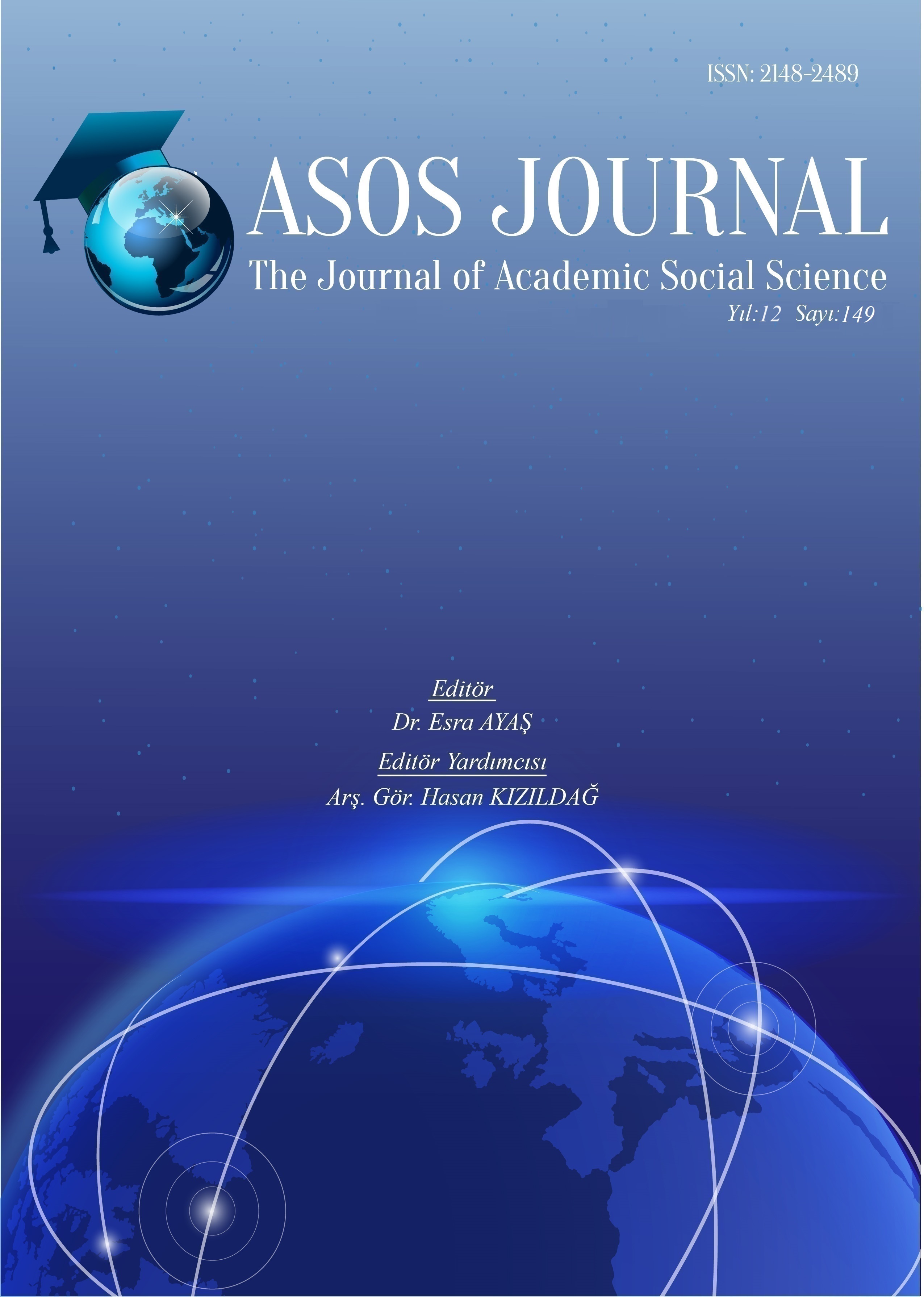Author :
Abstract
Eğitim toplumları belirlenen amaçlara yönlendiren, kişinin tutum, bilgi ve beceri düzeyini geliştirmeyi hedefleyen süreçler bütünüdür. Çocuk ve gençlerin eğitime erişimi ve erişim sonrası süreci devam ettirebilmesi önemlidir. Ülkelerin gelişmişlik düzeyi, eğitim politikaları, coğrafi yapısı, cinsiyetler arası eşitlik/eşitsizlik ilkeleri gibi faktörler öğrencilerin öğrenme, başarı, adaptasyonu üzerinde etkilidir. Daha da mikro ölçekte ailelerin sosyoekonomik statüsü, yaşadığı mahalle, semt, ilçesi veya ili bu eğitim sürecinde etkili olup, bulunduğu bölgede eğitime erişimi, eğitimin niteliği, eğitim kurumlarının yapısı gibi etkenler de akademik başarı üzerinde belirleyicidir. Bu çalışmada yükseköğretim eğitimleri sonrası eğitim süresince aldıkları uzmanlık alanları dışında çalışan gençlerin yoksulluk durumları ele alınmıştır. Çalışmanın amacı: Yükseköğretim mezunu gençlerin uzmanlık alanları dışında çalıştıkları alanlara giden süreci eğitim eşitsizlikleri, kültürel sermaye, meritokrasi, toplumsal hareketlilik bağlamında anlamaya çalışmaktır. Yöntem: Yükseköğretim eğitimleri üzerinden 2 yıl geçmiş olan, Adana’da yaşayan mezun oldukları bölümler dışında daha çok emek gücüne dayanan ve niteliksel olarak yoksun olan işlerde çalışan 15-29 yaş aralığında yükseköğretim mezunu gençler ile yarı yapılandırılmış görüşme formu aracılığıyla veriler toplanmıştır. Sonuç ve Öneriler: Ailelerin eğitimde geçirdikleri süre, eğitime yabancılaşma durumları, gençlerin eğitim öncesi ve eğitim sonrası aşamalarında belirleyici bir rolü bulunmaktadır. Gençlerin hanelerinden aldıkları yoksulluğu eğitimlerinin diğer aşamalarında olduğu gibi (ilkokul, ortaokul, lise) yükseköğretim sürecine dahil olmalarına rağmen yeniden üretme riski ile karşı karşıyadırlar. Çocuk yaşlardan itibaren yoksullukları ile baş etme, ailelerine yük olmama, eğitimin materyallerini karşılama gibi nedenlerden dolayı iş piyasasına dahil olmuşlardır. Eğitim sonrası işsiz kalma durumu gençlerin dışında birçok farklı yapısal problemlerin ürünü olmaktadır. Yoksulluğun kronikleşmesi ile mücadelede dezavantajlı/kırılgan gruplar olarak gençlerin eğitimin farklı aşamalarında desteklenmesi yoksulluk döngüsünden çıkabilmelerine olanak tanıyacaktır.
Keywords
Abstract
Education is a comprehensive process that guides societies towards defined objectives, aiming to enhance an individual's attitudes, knowledge, and skill levels. Access to education for children and young people, as well as their ability to sustain this access, is crucial. Factors such as a country's level of development, educational policies, geographical structure, and principles of gender equality/inequality have an impact on students' learning, achievements, and adaptability. Furthermore, at a more micro level, the neighborhood, district, or region in which an individual resides plays a significant role in the educational process, influencing factors such as access to education, the quality of education, and the structure of educational institutions in that area. This study addresses the poverty status of young individuals who work outside their fields of expertise following their higher education. The aim of the study is to comprehend the process that leads young university graduates to work in areas unrelated to their expertise within the context of educational inequalities, cultural capital, meritocracy, and social mobility. Method: Data was collected through semi-structured interview forms from young university graduates between the ages of 15 and 29, residing in the central districts of Adana, who graduated more than two years ago and are employed in jobs that predominantly rely on manual labor and lack in qualifications compared to their field of study. Results and Recommendations: The amount of time families dedicate to education, the level of estrangement from education, and the roles of young individuals in the pre- and post-education stages play a crucial role. Despite their inclusion in the higher education process, young individuals are faced with the risk of reproducing poverty they inherit from their households, just as in other stages of education (elementary school, middle school, high school). Due to reasons such as coping with poverty from a young age, not burdening their families, and covering the costs of educational materials, they have joined the job market. The issue of unemployment after education results from various structural problems beyond young individuals. Supporting disadvantaged/vulnerable groups like young individuals at different stages of education can provide them with the opportunity to break free from the cycle of poverty, especially in the face of the chronic nature of poverty.





